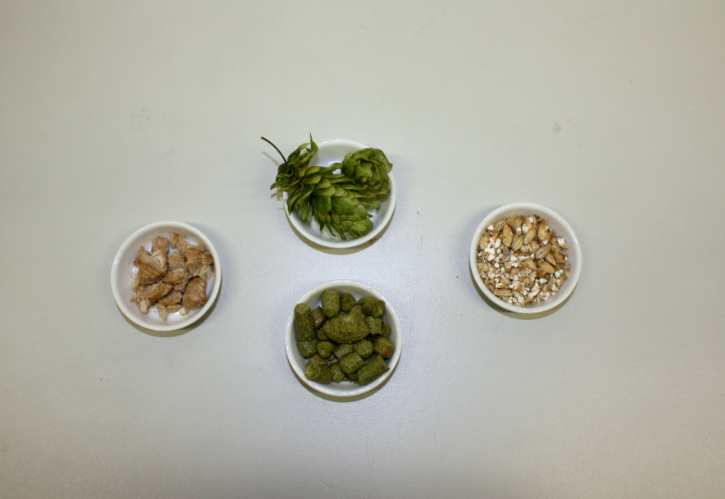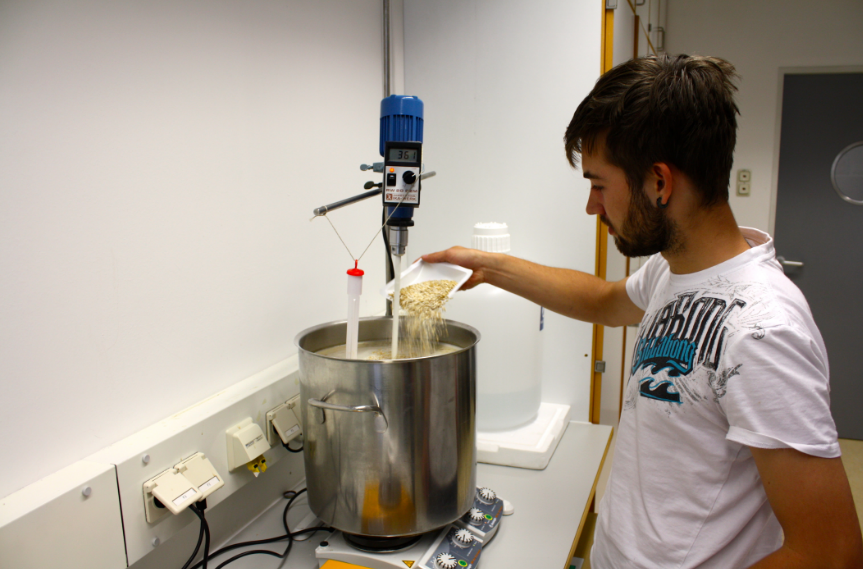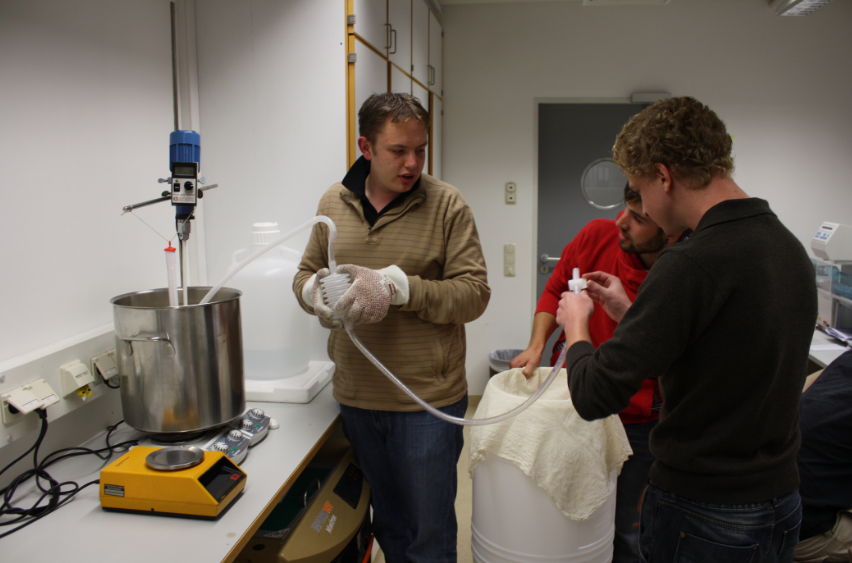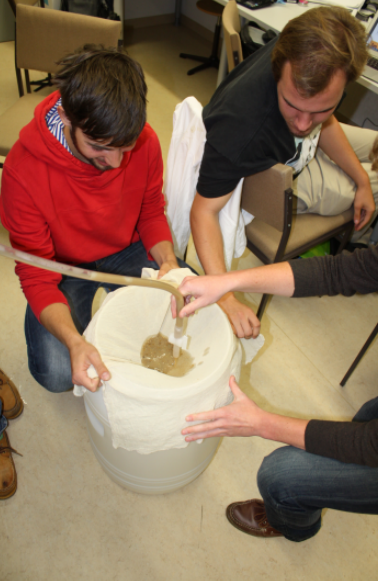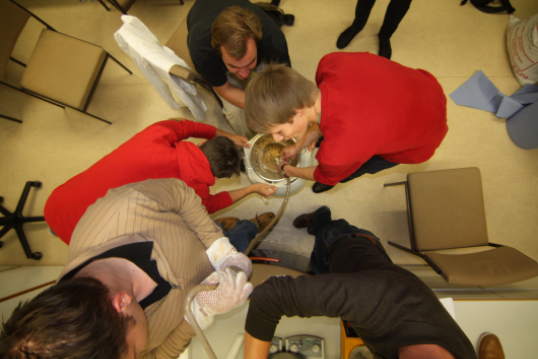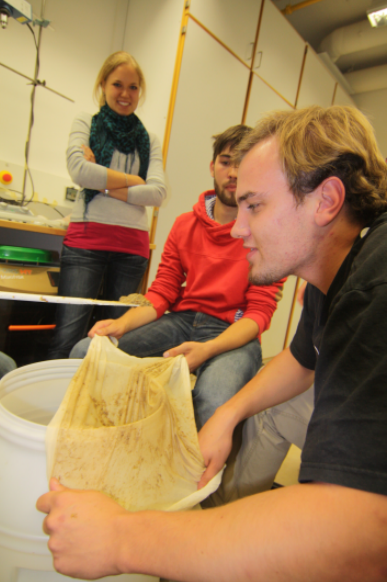Team:TU Munich/Project/Brewing
From 2012.igem.org
Nadine1990 (Talk | contribs) (→The Brewing Process) |
Nadine1990 (Talk | contribs) (→The Brewing Process) |
||
| Line 18: | Line 18: | ||
It has to be said that the temperature is always raised rather slowly. | It has to be said that the temperature is always raised rather slowly. | ||
| - | The next step is to raise to 76 °C, after one hour the mash ready and | + | The next step is to raise to 76 °C, after one hour the mash is ready and can be removed from the pot, and filtered. The fluid is put into the cleaned pot again and slowly heated up to 100 °C after 10 minutes the hop is added. This is now the Gyle, which boils now for about an hour. |
| + | |||
| + | Next is another filtration into the final bucket, this has to be sterilized before. This bucket is closed and put into a cold room. When the temperature has fallen to 24 °Celsius or less, the yeast is added, a special covering put on the bucket (it has a hole for the CO<sub>2</sub>) and the bucket is left alone for 6 days at a temperature of 21 °C. Now the fermentation starts and the alcohol is produced by the yeast. | ||
| + | |||
| + | In the end iGEM's first and finest is finished! | ||
| - | |||
<center> | <center> | ||
[[File:TUM12_brewing1.png|180px]] | [[File:TUM12_brewing1.png|180px]] | ||
Revision as of 14:41, 24 September 2012



Brewing
Description idea.
- Does our laboratory streain of yeast survive the conditions of "the brewing-media"
- Are the substances that shall be produced by the yeast toxic and where is the toxic concentration.
- Try a brew with yeast having the expression cassetts on transient transfected vector.
- Try a brew with yeast having the expression cassetts stabely integrated in the genome.
The Brewing Process
To begin with you need bruised grain and it is put in 50 °C hot water; this temperature is kept for 40 minutes. Then the temperature is raised to 64 °C, this temperature is steady for 30 minutes, after that it is raised to 72 °C for another half an hour. Now the progress is controlled by an Iodine test. It is tested if the starch is completely decomposed to sugar. When the sample does not turn violet everything is okay. It has to be said that the temperature is always raised rather slowly.
The next step is to raise to 76 °C, after one hour the mash is ready and can be removed from the pot, and filtered. The fluid is put into the cleaned pot again and slowly heated up to 100 °C after 10 minutes the hop is added. This is now the Gyle, which boils now for about an hour.
Next is another filtration into the final bucket, this has to be sterilized before. This bucket is closed and put into a cold room. When the temperature has fallen to 24 °Celsius or less, the yeast is added, a special covering put on the bucket (it has a hole for the CO2) and the bucket is left alone for 6 days at a temperature of 21 °C. Now the fermentation starts and the alcohol is produced by the yeast.
In the end iGEM's first and finest is finished!
Results
Experiment 1: Survival and growth of different yeast strains under various conditions
Experiment 2: Toxic concentration of the substances to be produced
Experiment 3: Experiments with expression cassetts on a transient transfected vector
Experiment 4: Expression cassetts stabely integrated in the genome
 "
"
